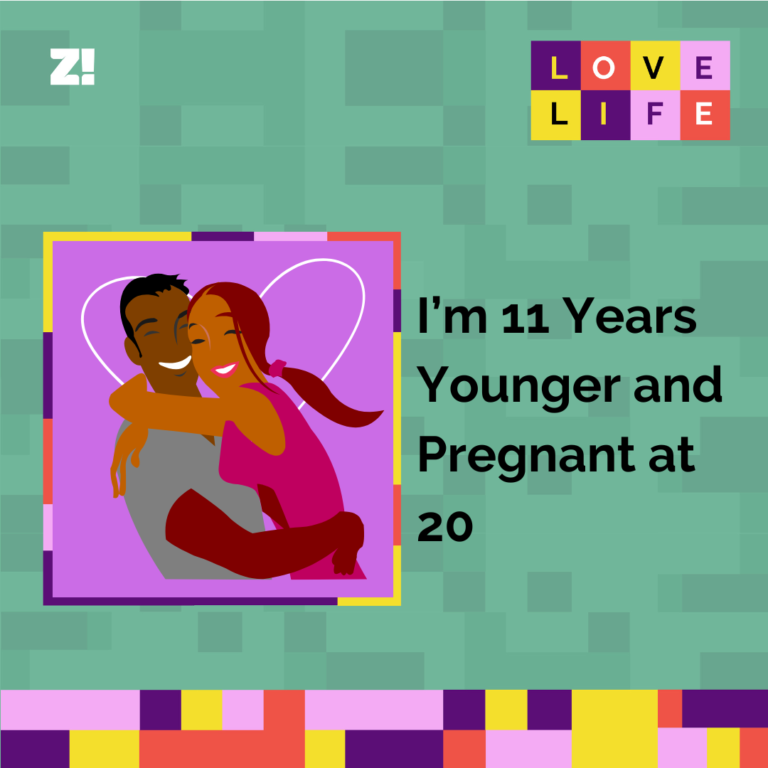Love Life is a Zikoko weekly series about love, relationships, situationships, entanglements and everything in between.
How did you meet?
Pius: Our first meeting was brief. In 1965, I’d come back to town for a two-week Christmas break from Budapest, where I was studying town planning. My father and uncles said they’d narrowed my potential wife down to two women from our village in Emekuku. I was to meet them so a final decision could be made.
Clementine: My father really wanted him to choose me because his father was the village head and I was the oldest of six girls. Our marriage would bolster my sisters’ chances greatly. He even put my immediate younger sister as an option too. But she didn’t make the shortlist.
At the time, I was more focused on getting my teachers training. I was just about 18 years old when these conversations were had.
Pius, how did you make your decision?
Pius: The two final women were both city girls. I met with each of them in their father’s houses, but I clicked with Clemen more. She was beautiful, modern, and you could tell she had a mind of her own. I admired that about her. Back then, people used to call her “Oyibo” because she was tall, slim and had fair skin. She was also fashionable, putting on her English skirt suits and fine jewelry.
My family agreed with my choice, and I travelled back to school in January 1966 as scheduled — just before the famous coup. After they did the traditional marriage, they sent her on a plane to meet me at my university in Hungary.
Clementine: We both still keep in touch with the other woman, who married a good friend of his.
What was a proxy wedding like, especially during the heat of political unrest?
Clementine: The wedding took place in the village, early in April. It was just as big and exciting as any wedding would’ve been. His youngest uncle acted on his behalf during the rites. Then we ate, danced and laughed till nightfall. By the time I left Nigeria, I don’t think the northern killings had started coming to light yet.
Pius: The common Igbo man was still in blissful ignorance till well into May/June.
How long before you got on that plane to Europe?
Clementine: Not up to a month. Both families had to put money together for the trip. In the meantime, I stayed in his father’s house, where they treated me very well, and went to work in the state school every day from there.
I longed to finally reunite with him, but I distracted myself with work and social activities, so I don’t remember ever feeling down. I left that same April.
Pius: When the telegram of her arrival got to me days ahead, I was excited. I couldn’t wait to meet my new wife properly.
But how could you accommodate a wife as a student in another country?
Pius: We managed in my studio apartment. It was just for about ten months till the end of my program. I got stipends from the government as part of the scholarship I was under. Our family sent us an allowance as regularly as they could, and I worked part-time too. The naira was still a strong currency then.
Clementine: Those were some of the happiest days of our marriage. We were young, independent and happy to manage resources together. I don’t think I wanted anything and didn’t get it, and that’s how it’s been throughout our marriage.
Would you say you fell in love at that point?
Clementine: Love? It wasn’t something we really thought about. Were we in love? I don’t think it was one of the parameters that existed when evaluating one’s marriage. But we were happy, committed and felt very responsible for each other’s welfare. I also didn’t mind spending time with him… when his head wasn’t buried in a site plan or book.
Pius: I cared for her deeply then and always. But I fell in love when I saw her black and white portrait and met her for the first time way back in ‘65. I was glad the community chose someone as pleasant as her for me. And being alone in a foreign land together drew us closer. We learnt to lean on each other a lot.
Clementine: But alas, I had to return to Nigeria to set up our home, as he was wrapping things up for graduation.
I found out I was pregnant with our first child a week after I arrived back in Owerri in March 1967. I also found out about the mass killings and unrest, but the East was still mostly safe at the time.
HIGHLY RECOMMENDED: Love Life: We’re Married But Celibate
When did things change?
Pius: As soon as Jack declared war on the East.
I returned to Nigeria in April and went straight to the Lagos state bursary for some paperwork concerning my just concluded university programme. The hostility against me was clear even there in the government office. An official told me I should’ve remained in the safety of Europe. But his meaning didn’t sink in until I got to Owerri some days later.
Unfortunately, I couldn’t have stayed abroad even if I wanted to. My programme was done, and my permit had expired.
Clementine: In Owerri, people celebrated the May announcement of a sovereign state. It was like a grand unending festival in all the major streets. You could see that Biafran flag flying everywhere. It was this fanfare that welcomed my Big Darling back into his city after so long in a foreign land.
I still remember the potent joy and relief we all felt as a people. People were sharing food anyhow. You could be by yourself in your verandah and someone from down the street would come to you with a pot of soup and large pieces of meat.
Pius: But when we went to our village in Emekuku, none of that mattered. They didn’t know or care about the city politics there. All they knew was that their children had been butchered in their thousands for a long time now. They’d seen some of the dead bodies and were satisfied to hear that would no longer happen. That was it.
They would never have imagined what was coming.
Did you settle back in the city or village, and what was that like?
Pius: I was often in the village, as the firstborn son of the village head. But we stayed in Owerri town.
As soon as I got in, I reported to the Eastern State Ministry of Lands and got my posting into the civil service. We got a flat in the government estate and a substantial transport allowance separate from my wages. Everything was all well and good. Then, the war started four months later.
Clementine: My only brother was forcefully enlisted and never returned. But thankfully, Big Darling’s position in the ministry kept him from having to engage in combat.
Before the war started, something happened. Soldiers were usually shuffled across the different regions such that southern soldiers were mostly in the north, and northern soldiers were posted in the south. So the soldiers around Owerri at that time were mostly northerners and some Yorubas.
One day, an army van hit Big Darling’s car, but they still pulled him out and arrested him. When he came home the next day, he was so badly wounded he fell sick for a long time. That period was very trying for me, especially after the simple happiness of our brief stay in Hungary. I was nursing a first-time pregnancy and a convalescent husband, while the talk of war was getting louder.
Pius: By the end of 1967, when Jack’s army started gaining ground, I had to move Clemen to Umuahia, closer to the seat of Ojukwu’s power. I returned to Owerri for some months but went back to meet her when the situation got even worse. When Clemen gave birth to our first child, we named her Mercy because she was such a peaceful baby who didn’t give us much stress as we struggled for our lives.
We eventually had to move into a bunker for several months, and it became impossible for me to travel back and forth.
What was it like nursing a baby in a bunker?
Clementine: She was an easygoing baby. The good thing was we didn’t have to worry about food since there was breast milk. I breastfed her exclusively for almost a year, but not by choice. The labour was hard, but I was fortunate to have had access to a hospital before things got really bad.
Every morning, Big Darling would leave the bunker with the other men in search of food. And the women would start praying and singing praises to God so we’d get to see our husbands again, and if He was extra merciful, they’d have food with them. At night, we once prayed for Ojukwu’s victory, but it soon turned to desperate cries for an end to the war.
Pius: We were starving, and Ojukwu wasn’t intervening. At some point in 1969, he hardly even addressed us. Going out in search of food while our so-called messiah seemed more and more out of reach made me feel shortchanged, like our people had been deeply betrayed by all involved.
We’d spend the whole day queuing for the limited supply of basic food from foreign charities, or searching empty farmlands for even an inkling of crops, or even hunting wild animals. All the while, I’d remember my father’s large farmland in the village, and how we took eating store-bought food for granted.
When we returned at night, I and Clemen would stay tucked in our little corner of the hot shelter, with a sobbing baby in our arms. We’d be quiet while we ate. After they managed to sleep, I’d do my own sobbing. We talked sometimes — about God, faith and hope. To keep hope alive, we made plans for after the war. We talked about the many children we still had to have.
Clementine: We now have six, exactly as we promised ourselves in that bunker. The only thing is we have four girls and two boys, instead of three girls and three boys.
If you want to share your own Love Life story, fill out this form.
I’m so happy you made it. What was life like after the war?
Pius: I went right back into the Nigerian civil service, and the new Eastern Central state governor became my friend. He was one of the group of first non-military governors Jack appointed at the time. I worked with the governor’s administration in the efforts to rebuild the state. That made me useful to the government and made my family’s recovery from the war easier.
I became permanent secretary in 1976, and after 15 years in that role, I retired in 1991.
Clementine: I went back to teaching in the ministry. When he became permanent secretary, I went to the UK for my master’s degree. He promised I would, and he kept his promise. It didn’t matter that we’d had three more children by then. My mother took the youngest ones to take care of them while I was away.
My degree was in special education, so on my return, I was promoted to a senior role as coordinator in the State Ministry of Education. I was a pioneer in the field, so I was tasked with setting up a new department. Then I got my UK school to partner with the state government on the project.
They sponsored my trips to attend conferences all over the world, and Big Darling would pay for him and the kids to accompany me. At different times between 1981 and 1984, we went to Paris, London, Florida, Berlin and more. In the evenings, we’d all go out to eat and tour the cities.
It was like the honeymoon we never had, but with our kids. We even went to Disney World once. I’m very fond of these memories.
Pius: I feel blessed that we were able to get a new lease on life after the war. And I got a chance to really take care of my family.
And how has your love life been in retirement?
Pius: It’s been good and peaceful. We’re still in Owerri North where we have all our properties. Our four girls are in Lagos, so we get to visit with them in rotation. Let them be the ones to spoil us now that the tables have turned. One of our sons is in the UK, and the last is here with us in Owerri. Me and Clemen don’t spend as much time together anymore.
Clementine: In the first few years of my retirement, our age difference caught up with us. It became clearer as he entered old age, and I was still middle-aged, that he was no longer willing or fully able to be as social as we were used to. I still very much needed to attend my outings, so I started going alone more.
We also argued more during this time, about everything from the children, our investments, the house decor and travel plans to religion. He was devoted to the catholic church, but I’d found Apostolic Faith.
Pius: In the 70s to 80s, our relatives used to call us each other’s handbags. But from the 2000s, we started growing apart and had to make compromises to stay committed. We decided we’d respect each other’s changes. One cannot expect to be married for close to 60 years and still be the same people we were in our youth.
We’ve made peace with that and continue to care for each other as we always have.
How would you rate your love life on a scale of 1 to 10?
Pius: At this age? 10. What else could I possibly want?
Clementine: 10 for me too. I’m grateful to God for preserving our lives and keeping us together.
Check back every Thursday by 9 AM for new Love Life stories here. The stories will also be a part of the Ships newsletter, so sign up here.
IF YOU LOVED THIS, YOU’D LOVE THIS: Love Life: I Was a Puff-Puff Seller, so His Family Believes I Jazzed Him




